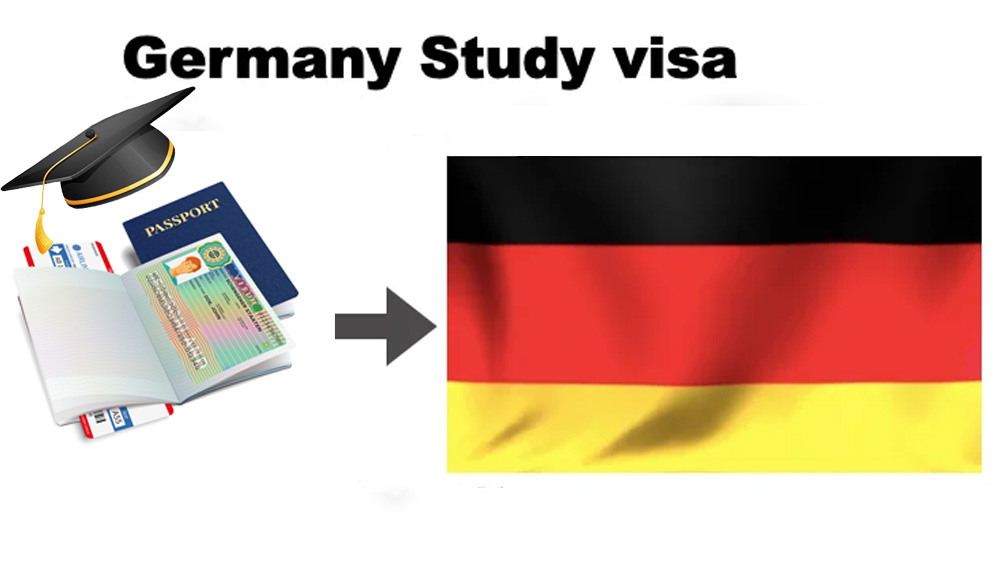Having a German study visa is very easy. However, for this to be possible one must first apply for a German student visa if he or she wants to study in Germany.
As you know, Germany is one amazing place to study because it’s very cheap compared to other countries. Universities that charge tuition are easy to get into and students with a GGPA between 2.1 and 2.2 can get into German public universities.
Germany Student Visa Process
To study in Germany, you need a student visa and also a housing permit. While in Germany, you can study and also take up a part-time job to get yourself some financial support.
Well, getting a housing permit as an international student will have to need German government involvement to handle your visa request. This process can take a long time.
In this blog post, we will be providing needed and useful information to help you through.
Benefits of German Study Visa
Here are accessible benefits when offered a student visa to study in Germany:
High-Quality Education
Diverse Academic Programs
Globally Acknowledged Degrees
Opportunities for Research
Language Proficiency
Cultural Experience
Affordable Education
Work Opportunities
Geographical Advantages
Global Networking

Requirements of German Study Visa Process
To get started with this visa application process, interested applicants must have the needed requirements:
For a bachelor’s degree in Germany, you need to have gone to school for 12 years.
For a Master’s degree in Germany, you need to have gone to school for 16 years.
You have been accepted to the German university and have been sent an offer letter.
Show proof of your schooling, like transcripts from high school and college or your diplomas from college.
Proof of payment that you have enough money to cover your living costs while you are in school (at least €11,208 a year). If you have a grant, you may not have to do this.
Who Does Not Need a Visa?
Well, those from Iceland, Liechtenstein, Norway, and Switzerland, which are EU and EFTA states, do not need a visa or a residence pass to enter the country.
It is possible to visit Germany without a visa if you are from Australia, Israel, Japan, Canada, the Republic of Korea, New Zealand, the United Kingdom of Great Britain and Northern Ireland, or the United States.
All other people from third or developing countries must apply for a visa at the German embassy or consulate in their home country before they can enter Germany.
Types of German Study Visa Purposes
For those who want to study in Germany for a long time, you will need to apply for a long-term visa called the Germany National Visa (D Visa). This visa however comes in three different types and they include:
Language Course Visa
German classes that last between three months and a year.
Student Applicant Visa
If the college you applied to hasn’t sent you an official acceptance letter yet, you need to take the entrance exams that the college offers. It’s good for three months, but it can be extended to six months.
Student Visa
This visa is good for a long time if you have been accepted to a German university to get a bachelor’s, master’s, or PhD degree.
Visa Cost
German student visa fee costs €75.
How to Apply for a German Study Visa
Follow the guides below to apply for your visa:
To begin, get all the required documents ready
Head on to the German Embassy to get started with your visa application or consulate in your country
To visit this embassy or a consulate you need to book an appointment and to do just that you can check out the world map to see which of the embassy or consulate you need to call.
Ensure you apply at least three months ahead of time.
Apply for the Residence Permit after Arriving in Germany
To get a residence permit, you need to go to the office for resident registration that is closest to your home in Germany. This step can be helped by Germans and students.
Work during your study program.
Stay in Germany after you finish your program
Staying in Germany after obtaining your degree
There are several ways for you to stay in Germany after you finish school. Some include:
The Job Seeker Visa
The German Employment Visa
If you have a job offer, you can apply for the German Employment Visa